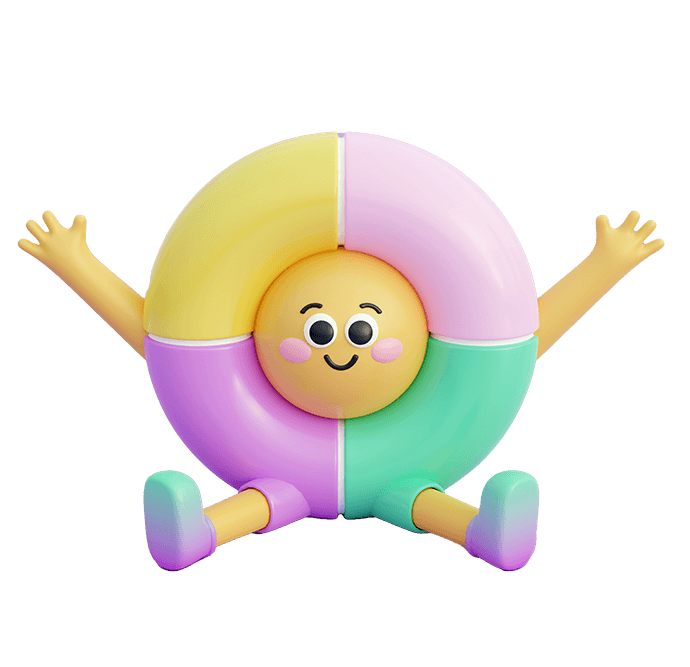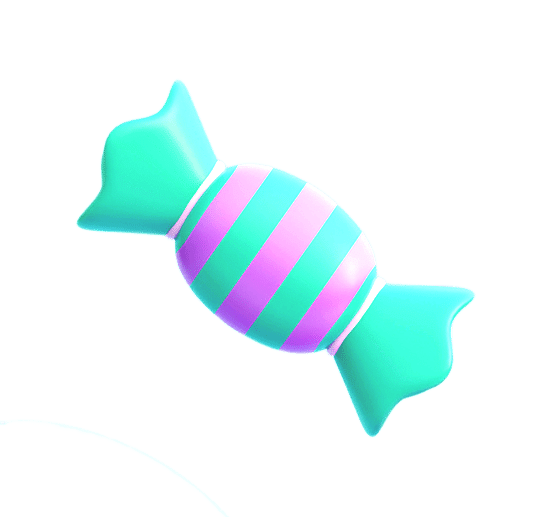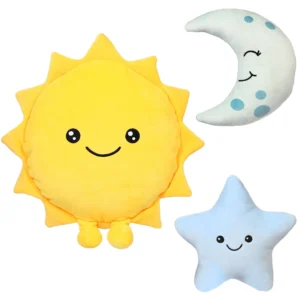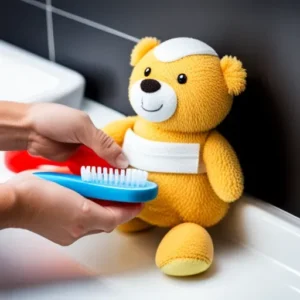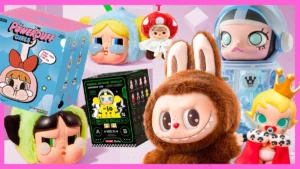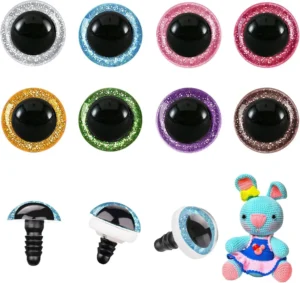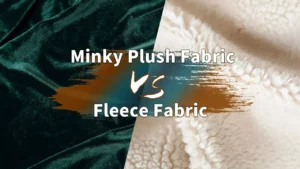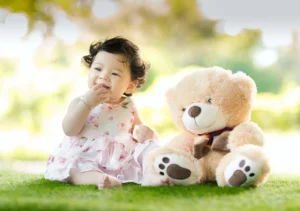Ever seen your kid lugging around their plush toy like it’s survived a food fight, a mud puddle, and a dog cuddle? Those fuzzy pals are total love magnets, but they’re also like sponges for germs, crumbs, and mystery stains. Washing them isn’t just about keeping them Instagram-cute—it’s about making sure your little one’s bestie isn’t a health hazard. To wash plush toys, hand-wash delicate ones with eco-friendly mild detergent, machine-wash sturdy toys on a cold gentle cycle in a mesh bag, and air-dry to keep them fluffy, fresh, and germ-free. Picture your kid’s grimy teddy bear coming out soft, clean, and ready for another round of epic snuggles. Wanna know how to pull that off without turning your plushie into a soggy lump? Grab a coffee, and let’s dive into the ultimate, no-fuss guide to washing plush toys like you’ve been doing it forever!
What Are the Risks of Not Washing Plush Toys?

Unwashed plush toys collect bacteria, dust mites, and allergens, risking illness or allergies. Regular washing keeps kids safe and toys huggable.
Why You Gotta Wash Those Fuzzy Buddies
What Kind of Ick Sticks to Plush Toys?
Plushies soak up bacteria like E. coli, staph, or even mold if they get wet and stay damp. Dust mites, pet dander, and pollen also pile up, especially in toys that get daily cuddles. A 2024 study found 95% of unwashed kids’ toys carry some bacteria after just a month.
How Do These Germs Mess with Your Kid?
Germs can spark tummy aches, skin rashes, or infections, while allergens like dust mites cause sneezing, itchy eyes, or asthma flare-ups. Kids under 5 are super vulnerable since their immune systems are still in training. Clean toys mean worry-free playtime.
Why Does Washing Save the Toy Too?
Dirt, sweat, and oils from little hands break down fabric, making colors fade, fur matt, or seams pop. Gentle washing keeps plushies looking fresh for years. Our factory uses tough, washable materials so toys can handle regular scrub-downs.
Are Some Plushies Dirtier Than Others?
Toys that get dragged everywhere—think park, bed, kitchen—collect more grime. Shared plushies or ones with textured details like embroidery trap extra dirt. Our factory designs smooth, easy-clean surfaces to cut down on germ hideouts.
What Happens If You Never Wash Them?
Beyond germs, unwashed toys get stiff, smelly, and worn out fast. A 2023 survey said 70% of parents noticed toys looked “gross” after a year without cleaning. Our factory’s plushies are built to stay vibrant with regular care.
Critical Perspective: Are We Freaking Out Over Germs?
Some folks say a bit of dirt helps kids build immunity, and over-cleaning’s a waste of time. But harmful bacteria and allergens aren’t worth the risk, especially for babies or kids with allergies. Our factory’s cleaning-friendly plushies make it easy to keep things safe without going full germaphobe.
| Issue | What Happens | Why It Matters | Factory Insight |
|---|---|---|---|
| Bacteria & Germ Buildup | E. coli, staph, mold, etc. accumulate within weeks | Can cause stomach bugs, skin rashes, and infections | Our plushies use washable materials for easy disinfection |
| Dust Mites & Allergens | Toys trap dust, pet dander, pollen | May trigger allergies, sneezing, itchy eyes, asthma | Smooth surfaces reduce allergen retention |
| Fabric Damage from Dirt & Oils | Sweat and oils break down fabric, fade colors, and weaken seams | Shortens toy life, makes them look old and feel rough | Fabrics tested for colorfastness and durability under regular washing |
| Bad Odors & Appearance | Toys become smelly, stiff, matted | 70% of parents say unwashed toys look “gross” after a year | Plushies designed for shape and softness retention |
| Higher Risk for Young Kids | Underdeveloped immune systems = more vulnerable to toy-borne germs | Babies and toddlers especially need clean toys for safe play | Meets international safety standards like ASTM F963 |
Which Plush Toys Can Be Washed and How?
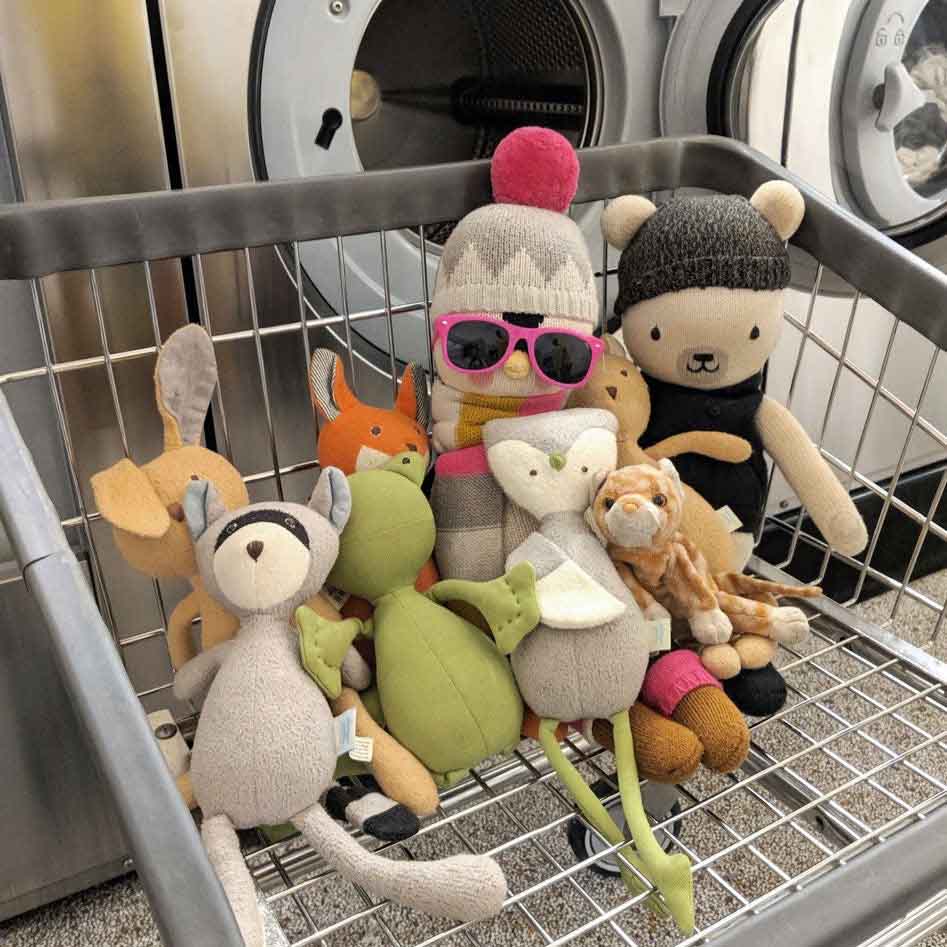
Most plush toys can be hand-washed or machine-washed; check care labels for details. Delicate or electronic toys need wiping or steaming instead.
Figuring Out What’s Washable
What Makes a Plushie Wash-Friendly?
Toys made of polyester, organic cotton, or minky with sewn-on features (like eyes) usually handle washing like champs. Look for “hand-wash” or “machine-wash” on the label. Our factory’s plushies are built tough to survive both.
How Do You Choose the Right Washing Method?
Hand-washing’s perfect for delicate toys, like ones with embroidery or loose stitching. Machine-washing works for sturdy, simple plushies. Electronic toys or vintage ones? Stick to wiping or steaming. Our factory’s labels spell it out to avoid guesswork.
Which Toys Can’t Handle Water?
Plushies with batteries, glued-on eyes, or fragile fabrics like silk or wool are water’s enemy—go for surface cleaning or steaming. Our factory tags these as “dry-clean only” or “surface-clean” to keep you in the clear.
What’s the Risk of Washing the Wrong Way?
Tossing a no-wash toy in the machine can fry electronics, shrink stuffing, or tear seams. Always check labels or test a hidden spot with a damp cloth. Our factory’s durable designs cut these risks, making most plushies wash-ready.
Are There Alternatives for Tricky Toys?
For non-washable plushies, try a vinegar-water wipe or a handheld steamer. UV sanitizers work too but are pricier. Our factory tests toys for all these methods to give you options.
Critical Perspective: Do You Always Need to Wash?
Lightly used toys might only need a quick wipe-down, but heavy-use plushies—think bedtime buddies—demand a deep wash to zap germs. Our factory’s versatile plushies let you pick the method that fits your schedule and toy type.
| Toy Type | Can It Be Washed? | Recommended Method | Why This Works |
|---|---|---|---|
| Polyester or Minky Plushies | ✅ Yes | Machine wash (gentle cycle) or hand-wash | Durable materials handle water and agitation well |
| Organic Cotton Plushies | ✅ Yes | Hand-wash preferred | Natural fibers hold up but may shrink slightly—gentler treatment is safer |
| Embroidered or Delicate Stitching | ✅ Yes (with care) | Hand-wash | Protects fine detailing from tearing or fraying |
| Toys with Batteries/Electronics | ❌ No | Surface wipe or steam clean | Water can damage circuits—use moisture-free or controlled methods |
| Plushies with Glued-On Parts | ⚠️ Risky | Spot clean only | Water may loosen adhesives—avoid full soaking |
| Vintage or Heirloom Toys | ⚠️ Risky | Gentle wipe or professional clean | Fragile fabrics and threads—preserve value with minimal moisture |
| Stuffed Animals with Fur/Long Pile | ✅ Yes (if label allows) | Hand-wash + air dry | Protects texture and prevents matting |
| Plush with “Dry Clean Only” Labels | ❌ No | Surface clean or dry-cleaning | Fabrics or filling not designed to be exposed to water |
How Do You Hand-Wash Plush Toys Safely?

Hand-wash plush toys by soaking in lukewarm water with mild detergent, scrubbing gently, rinsing well, and air-drying. This keeps them soft and clean.
Hand-Washing Like You Mean It
What’s the Full Hand-Washing Deal?
Grab a basin, fill it with lukewarm water (not hot—it shrinks stuff!), and mix in a teaspoon of mild detergent, like baby shampoo or Ecover. Dunk the plushie, scrub with a soft cloth or sponge, hitting dirty spots like faces or paws. Rinse until the water runs clear, then gently press out water without twisting.
Which Detergents Won’t Ruin Your Plushie?
Stick to hypoallergenic, fragrance-free detergents like Seventh Generation, Method, or Dr. Bronner’s. Bleach or harsh chemicals? Big no—they fade colors and chew up fibers. Our factory tests these gentle detergents to keep our plushies looking fab.
How Do You Dry Without a Mold Disaster?
Squeeze out water gently—don’t wring it like a towel. Lay the plushie on a clean, dry towel in a breezy, shady spot. Reshape it while damp to keep its cute vibe. Skip direct sun (it fades colors) and avoid dryers for delicate toys. A fan or open window cuts drying time. Check this out:
| Step | Do This | Avoid This |
|---|---|---|
| Squeeze | Press gently to remove water | Wringing or twisting |
| Drying Spot | Shady, ventilated area | Direct sun or damp spaces |
| Reshaping | Fluff and adjust while damp | Letting it dry lumpy |
| Speed-Up | Use a fan or open window | Tumble-drying delicate toys |
What About Nasty Stains?
For juice or food stains, dab with a baking soda-water paste (1:1) and let it sit 10-15 minutes before washing. Greasy marks? A drop of dish soap on a cloth does the trick. Our factory’s stain-resistant fabrics make stains less of a headache.
Can Every Plushie Handle Hand-Washing?
Most can, but double-check for electronics or super delicate details like glittery accents. If the label’s vague, test a hidden spot with a damp cloth. Our factory’s clear care tags flag any exceptions.
Critical Perspective: Is Hand-Washing Too Much Work?
It takes 20-30 minutes, which can feel like a chore when you’re juggling a million things. But for delicate or sentimental plushies, it’s the safest way to avoid shrinkage or tears. Our factory’s durable, wash-friendly fabrics make hand-washing quick and painless.
How Can You Machine-Wash Plush Toys Without Damage?
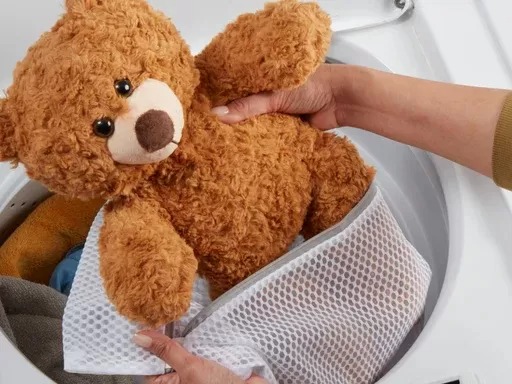
Machine-wash plush toys in a mesh bag on a cold, gentle cycle with mild detergent, then air-dry. Check the label to confirm it’s safe.
Machine-Washing Without the Oops
What Prep Keeps Your Plushie Safe?
Always check the care label—some plushies aren’t machine-friendly. Pop the toy in a mesh laundry bag to protect seams and details like eyes. Remove loose bits like hats or scarves. Our factory’s labels are crystal-clear to avoid screw-ups.
Which Machine Settings Are Money?
Use a cold, gentle cycle with a low or no-spin setting and a tablespoon of mild detergent like Method or Ecover. Hot water or heavy cycles can shrink stuffing or rip seams. Here’s your cheat sheet:
| Setting | Best Choice | Why It’s Key |
|---|---|---|
| Water Temp | Cold (30°C or below) | Prevents shrinking or color bleed |
| Cycle | Gentle or Delicate | Less stress on seams and stuffing |
| Detergent | Mild, hypoallergenic | Kid-safe, won’t harm fabrics |
| Spin | Low or No Spin | Keeps toy shape intact |
How Do You Dry Machine-Washed Plushies?
Air-dry on a clean towel or drying rack, reshaping while damp to keep the toy’s form. If the label says it’s cool, tumble-dry on low with a couple of tennis balls to fluff the stuffing. Our factory’s plushies are designed to dry fast and avoid mold.
Which Toys Should Skip the Washer?
Plushies with batteries, glued-on eyes, delicate embroidery, or vintage fabrics can’t handle the machine—hand-wash or wipe instead. Our factory marks these as “no machine” to save you from a soggy disaster.
What If Something Goes Wrong?
If a seam pops, stitch it up with a needle and thread. For slight shrinkage, reshape while damp and air-dry. Our factory’s sturdy designs minimize these issues, making machine-washing a safe bet for most plushies.
Critical Perspective: Is Machine-Washing Lazy or Genius?
Some purists say hand-washing’s better for TLC, but machines are a godsend for busy parents or tough toys. The key is knowing your plushie’s limits. Our factory’s washer-friendly plushies make it a no-brainer, saving you time without the risk.
How Do You Maintain Plush Toys After Washing?
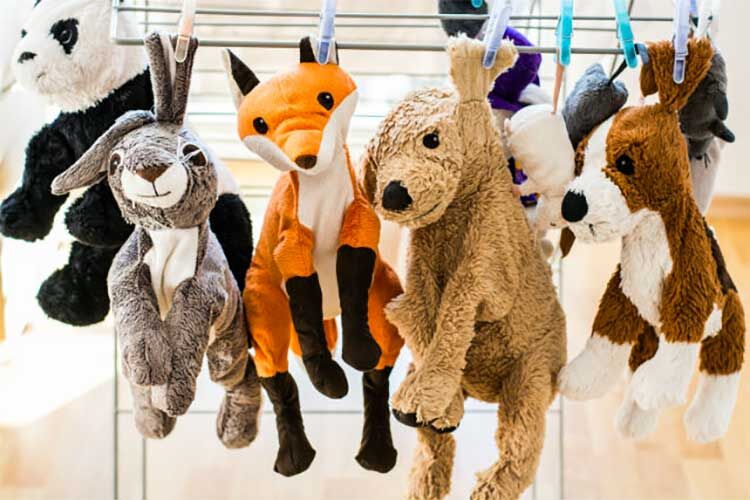
Brush, spot-clean, and store plush toys properly after washing to keep them fresh. Regular care keeps them looking new longer.
Keeping Your Plushies on Point
How Do You Fluff Them Up After a Wash?
Use a soft brush or comb to gently fluff the fur, especially on minky or long-pile plushies. For matted spots, work slowly with a hairbrush. Our factory’s fabrics are designed to bounce back to their cuddly glory post-wash.
What’s the Deal with Spot-Cleaning?
Between full washes, dab dirty spots with a damp cloth and a drop of mild soap, then air-dry. It’s perfect for quick fixes like juice stains. Our plushies’ stain-resistant materials make spot-cleaning super effective.
How Should You Store Plush Toys?
Keep them in a dry, airy spot—think a shelf or breathable fabric bin. Avoid damp basements or sealed plastic bags that trap moisture and invite mold. Our factory’s plushies resist dust, making storage easier.
Why Bother with Regular Maintenance?
Weekly brushing and spot-cleaning prevent dirt from digging in, cutting down on deep washes. Monthly full washes keep germs at bay. A 2024 survey found 85% of parents want toys that last years—maintenance makes that happen.
Can You Over-Maintain a Plushie?
Too much brushing or washing can wear fabrics over time, especially cheap ones. Gentle, spaced-out care is the sweet spot. Our factory’s durable plushies are built to handle regular TLC without fading or fraying.
Critical Perspective: Is Maintenance a Hassle or a Must?
Some think a quick wash is enough, but skipping maintenance lets dirt creep back fast, dulling your plushie’s shine. Our factory’s easy-care designs mean a little effort goes a long way, keeping toys fresh with minimal work.
| Care Task | What to Do | Why It Matters |
|---|---|---|
| Fluff the Fur | Use a soft brush or comb gently after drying | Restores texture, especially for long-pile or minky fabrics |
| Spot Cleaning | Dab mild soap + water on stains, wipe clean, air-dry | Keeps toys looking clean between full washes |
| Proper Storage | Store in dry, airy areas—use shelves or fabric bins | Prevents mold, odors, and dust accumulation |
| Routine Maintenance | Weekly brushing + spot cleaning; monthly full wash if heavily used | Prolongs fabric life, keeps germs away |
| Avoid Over-Washing | Don’t wash too often—use gentle cycles and fabrics designed for repeated care | Reduces fading, fraying, and loss of softness |
| Special Tip | For plushies with stiff areas post-wash, massage the stuffing back into shape | Maintains plush form and huggable feel |
Conclusion
Washing plush toys is like hitting the reset button—zapping germs, keeping your kids safe, and making those fuzzy pals ready for more snuggle marathons. Whether you’re hand-washing a delicate unicorn or tossing a sturdy dino in the machine, this guide’s loaded with pro hacks to keep your plushies clean and cuddly. At Kinwin, we’re all about crafting eco-friendly, washable plush toys that stay lovable through every adventure. Want a custom plushie that’s a breeze to clean and totally one-of-a-kind? Drop us a line at [email protected] to get a quote or check out our sustainable crew. Let’s make sure those plush pals stay fresh for every hug-fest!

